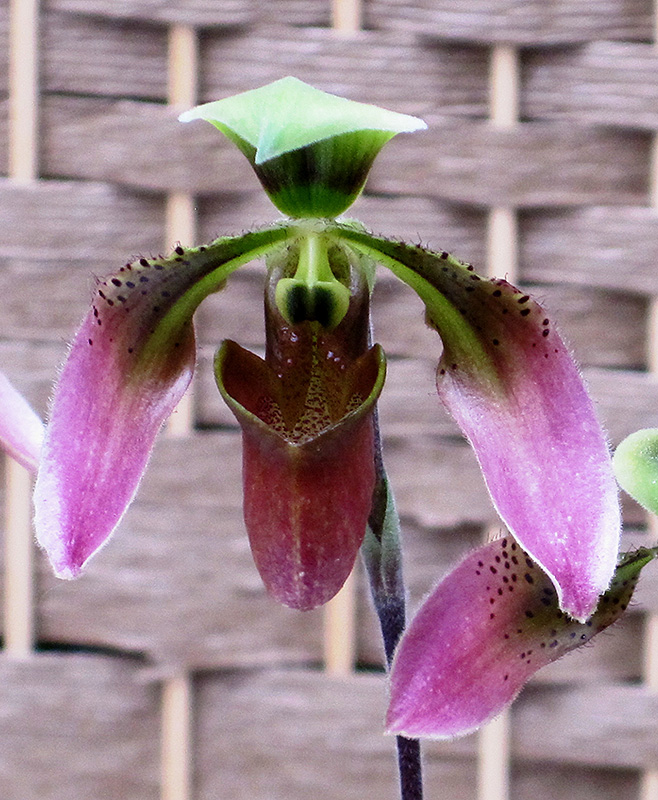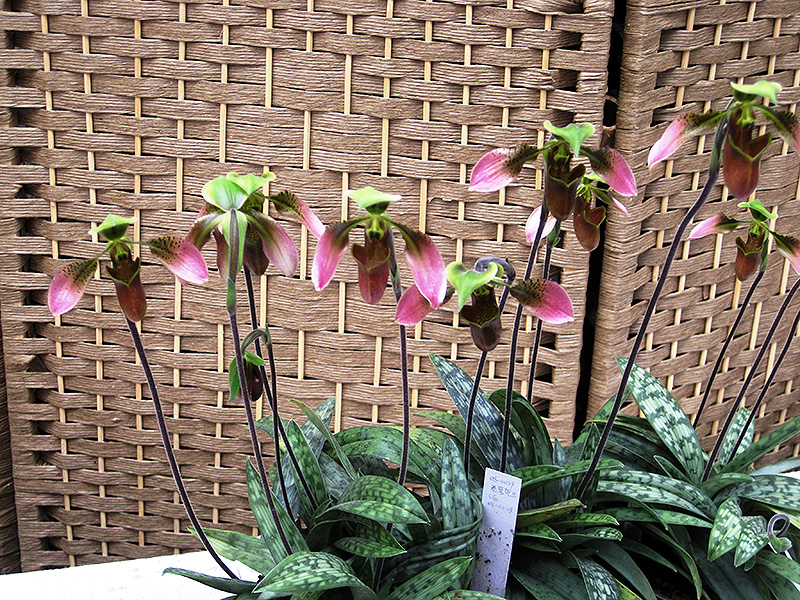Appleton's Orchid
Paphiopedilum appletonianum
Plant Height: 6 inches
Flower Height: 18 inches
Spacing: 8 inches
Sunlight:
![]()
Other Names: Ladyslipper
Description:
This lovely orchid produces tall elegant burgundy spikes crowned with dainty violet and chartreuse-green glossy blooms peppered with dark red spots; excellent focal plant for containers, or hanging baskets
Features & Attributes
Appleton's Orchid features dainty spikes of purple orchid-like flowers with chartreuse overtones and dark red spots at the ends of the stems in late winter. Its attractive narrow leaves remain light green in color with showy dark green variegation throughout the year. The burgundy stems can be quite attractive and add to the plant's interest.
This is an open herbaceous evergreen houseplant with tall flower stalks held atop a low mound of foliage. Its relatively fine texture sets it apart from other indoor plants with less refined foliage. This plant should not require much pruning, except when necessary to keep it looking its best.
Planting & Growing
When grown indoors, Appleton's Orchid can be expected to grow to be only 6 inches tall at maturity extending to 18 inches tall with the flowers, with a spread of 10 inches. It grows at a slow rate, and under ideal conditions can be expected to live for approximately 10 years. This houseplant should only be grown away from direct sunlight or in a room with strong artificial light. It does best in average to evenly moist soil, but will not tolerate standing water. The surface of the soil shouldn't be allowed to dry out completely, and so you should expect to water this plant once and possibly even twice each week. Be aware that your particular watering schedule may vary depending on its location in the room, the pot size, plant size and other conditions; if in doubt, ask one of our experts in the store for advice. It is not particular as to soil type or pH; an average potting soil should work just fine.
There are many factors that will affect the ultimate height, spread and overall performance of a plant when grown indoors; among them, the size of the pot it's growing in, the amount of light it receives, watering frequency, the pruning regimen and repotting schedule. Use the information described here as a guideline only; individual performance can and will vary. Please contact the store to speak with one of our experts if you are interested in further details concerning recommendations on pot size, watering, pruning, repotting, etc.
-- THIS IS A HOUSEPLANT AND IS NOT MEANT TO SURVIVE THE WINTER OUTDOORS IN OUR CLIMATE --


